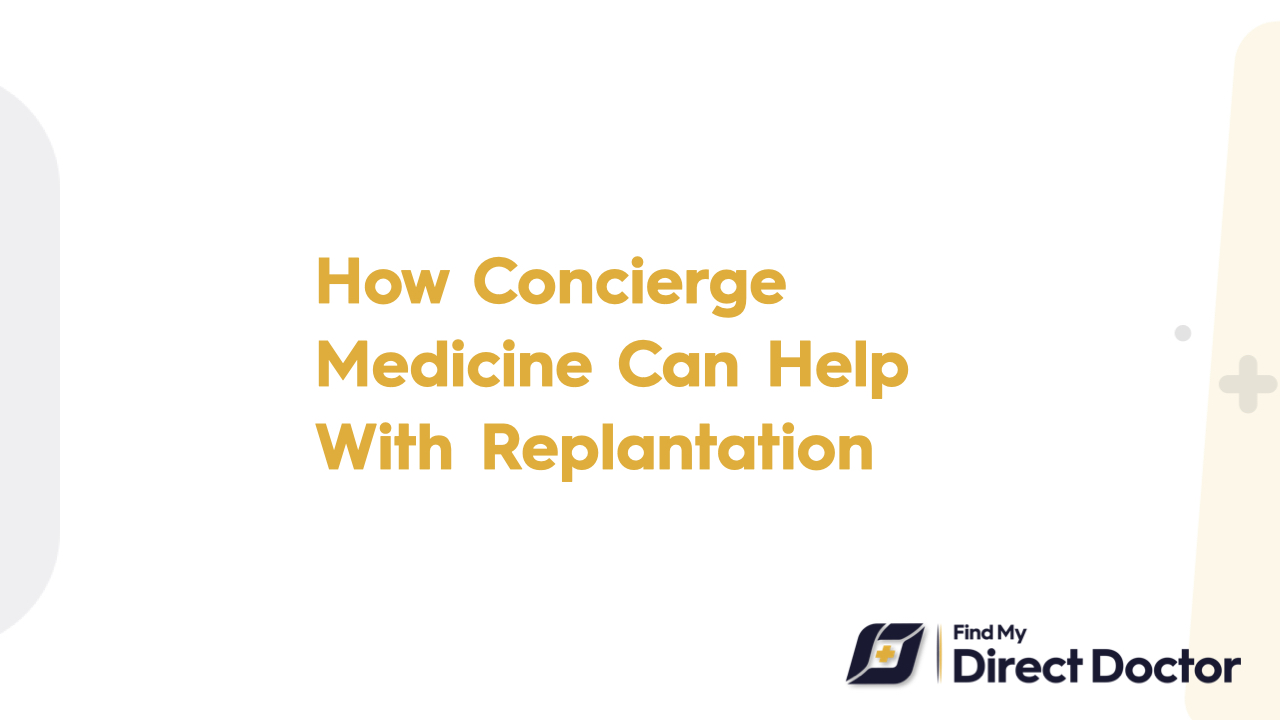



An extremity, finger, hand, or other body part can be reattached through a complex surgical procedure known as replantation. It requires expert surgical skills as well as a comprehensive and personalized approach to care during this delicate operation. By providing customized, patient-centered care that enhances outcomes and supports the overall healing process, concierge medicine offers significant advantages for patients undergoing replantation procedures.

During the initial consultation, concierge medicine ensures that each patient receives a comprehensive evaluation and a customized treatment plan. During replantation surgery, concierge physicians work closely with patients to understand their needs, concerns, and goals. This customized approach informs patients about the procedure, potential risks, and expected outcomes before the surgery.
By providing flexible scheduling and expedited access to specialists, concierge medicine also facilitates a smoother surgical experience. In replantation cases, time is a critical factor in preserving the viability of the severed body part. In order to provide timely and efficient care to patients, concierge practices have the ability to coordinate with surgical teams and other medical professionals as quickly as possible.
In addition to providing high-quality personalized care throughout the entire replantation process, concierge medicine offers patients a number of other benefits as well. During a concierge practice, patients receive undivided attention from their physician, who ensures the best possible outcome for them and addresses their specific needs. Pre-operative assessment, detailed explanations of the surgical process, and ongoing support are all part of this personalized approach.
In addition to offering flexible appointment scheduling and reducing wait times, concierge medicine also enhances patient convenience. The expedited access to surgery, surgical procedures, and post-operative follow-ups is crucial for replantation procedures, where prompt action can greatly enhance success. By expediting pre-operative evaluations, surgical procedures, and post-operative follow-ups, patients can reduce their stress and streamline their care.
As a result of concierge medicine, replantation patients are provided with continuity of care that is invaluable. In addition to providing personalized guidance and support at all stages of the procedure, the concierge physician closely monitors the patient's progress before, during, and after the procedure. As a result of this comprehensive follow-up care, any complications can be addressed promptly and the patient receives all the support necessary to heal and recover optimally.
It is tailored to each patient's unique needs and circumstances when preparing for a replantation procedure in a concierge medicine setting. Concierge services include detailed instructions on how to prepare for the surgery, including any necessary preoperative tests, dietary recommendations, and lifestyle adjustments. In addition to helping patients feel more confident and informed, this personalized preparation contributes to a smoother surgery.
In preparation for replantation, patients are informed about what to expect on the day of surgery, possible risks, and the recovery process, among other things. As a result of the concierge approach, patients are able to ask questions and discuss any concerns freely, resulting in greater peace of mind and clarity.
Personalized care tailored to meet the specific needs of patients is provided during post-operative recovery in a concierge practice. Upon completion of an operation, the concierge provides detailed instructions and is readily available for follow-up visits. As a result of this individualized attention, patients are able to achieve optimal healing and achieve the best possible results from their replantation procedure.
In general, concierge medicine offers a highly personalized, convenient, and supportive approach to the replantation procedure. In addition to customized care, flexible scheduling, and comprehensive follow-up, patients are more likely to have a positive and successful treatment experience.